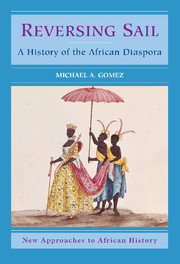6 - Asserting the Right to Be
Summary
The achievement of freedom throughout the Americas, however qualified, was very much a consequence of the myriad struggles of those of African descent. Their efforts would be supported by well-meaning whites and some indigenous groups. The American War of Independence and the French Revolution would contribute concepts and language to the struggle, but the enslaved did not need theoretical principles, developed to facilitate a breakaway republic in North America or to resolve class conflict in Europe, to know much more definitively than any enunciation of Enlightenment rationality could ever approximate, the depth of their anguish and yearning for deliverance.
The fight against slavery would assume any number of shapes and was waged in a thousand theaters of war, both literal and figurative. Activities from large-scale revolt to marronage to absconding to work slowdowns to poisoning were employed throughout the period of legal enslavement. However, as the antislavery struggle progressed, it became clear that the African was not only combating a nefarious system of inequitable labor extraction but was also up against a force arguably even more insidious: the conviction that African ancestry was an immutable mark of inferiority. Slavery was to leave an indelible imprint upon the attitudes and opinions of all who lived in the Americas, particularly those of European ancestry, who by and large came to view Africans and their descendants as intellectually and morally deficient.
- Type
- Chapter
- Information
- Reversing SailA History of the African Diaspora, pp. 109 - 161Publisher: Cambridge University PressPrint publication year: 2004



